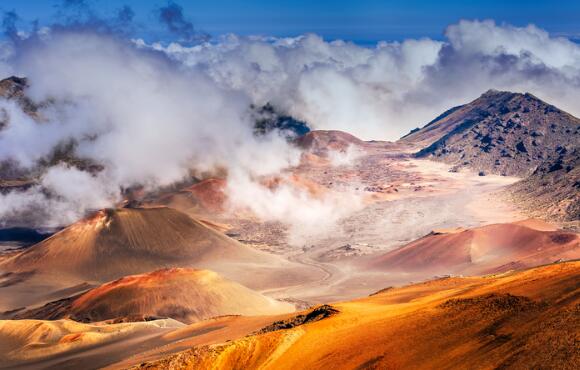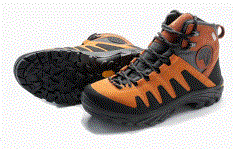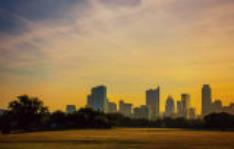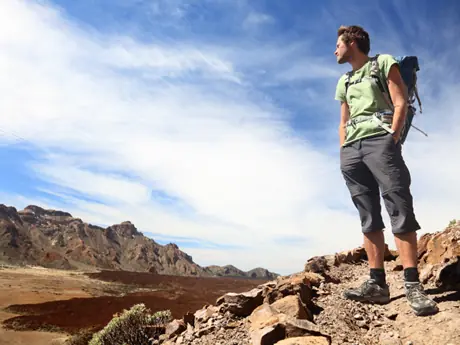Mount McKinley (Denali), Alaska
1 of 8
At 20,320 feet, Mount McKinley (Denali) is the tallest mountain in the North America. Typically, the higher the summit, the better the views, but most people can only imagine the stunning scenery from the top of McKinley. Situated in the Alaska Range in Denali National Park, climbing the mountain is extremely difficult and only the world's top mountaineers attempt the climb. Though significantly shorter than Mt. Everest, the world's highest peak, McKinley is the largest above sea level--the base to peak height rises more than 18,000 feet.
Mount Whitney, California
2 of 8
The tallest summit in the contiguous lower 48 states, Mount Whitney stands at 14,494 feet and is located in the Sierra Nevada Mountains. Though the trail is long, the summit can be reached by non-technical hiking. For its views of the snowy range, Whitney is the most popular summit in California. The trail starts at Whitney Portal on the east side of the Sierra Crest near the town of Lone Pine, and climbs 11 miles over more than 6,000 feet to the summit. Advanced climbers prefer to take the Mountaineers Route, which is a class 3 scramble up the north gully, or one of the more challenging technical climbs on the east face.
Mount Rainier, Washington
3 of 8
At 14,410 feet, Mount Rainier is the tallest mountain in Washington and the Cascade Range, but its height isn't the only thing that's impressive about the summit. Rainer's vertical relief of more than 13,000 feet makes it the most prominent base-to-summit peak in the contiguous states and larger than many of the tallest mountains in the world. The mountain is a massive stratovolcano, a cone-shaped volcano built up by many layers of hardened lava. From the summit, climbers can see as far away as Portland, Oregon, though the climb is extremely difficult and crosses the largest glaciers in the U.S. outside of Alaska.
Mount Washington, New Hampshire
4 of 8
Mount Washington is home to the highest summit in the Northeastern U.S. and is the most prominent peak east of the Mississippi River. At 6,288-feet tall, the mountain is famously dangerous for its unpredictable and harsh weather and challenging hiking. Located in the Presidential Range of the White Mountains, the views of the surrounding area are unobstructed. The Appalachian Trail crosses the summit, though the most popular route to the top is along the rough and rugged 4-mile Tuckerman Ravine trail. Hikers can take a shuttle bus down from the visitor's center at the top.
Haleakala, Hawaii
5 of 8
Haleakala is a massive volcano located on the island of Maui in Hawaii. The summit rises 10,023 feet, but from the top, visitors look down into a massive depression, or crater that is nearly 7 miles across, 2 miles wide and 2,600 feet deep. The volcano is part of the Haleakala National Park and is reached by a well-maintained two-lane highway. The summit is a popular tourist destination to watch the sun rise. There are numerous hiking trails in the park as well as cycling tours that guide visitors on a bike ride down the 27-mile road from the summit.
Pikes Peak, Colorado
6 of 8
Located in Colorado's Front Range, Pikes Peak stands 14,110-feet tall. The peak is just one of the state's 54 14,000-foot mountains and the twentieth highest summit in Colorado. But Pikes Peak's elevation isn't the only thing that makes it special. There are a number of ways to climb and stand atop the mountain. From hiking to bicycling to driving in a car, Pikes Peak is accessible to all levels of adventurers. Pikes Peak is a designated National Historic Landmark.
Stony Man, Virginia
7 of 8
Stony Man is a 4,011-foot mountain overlook located in Shenandoah National Park. Though it isn't the highest point in the park and the lowest summit listed here, the views from the top are unparalleled in the region. The summit mass of boulders and rocky cliffs offers unobstructed views of the surrounding Appalachian Mountains. The relatively easy 2-mile hike to the summit of Stony Man climbs less than 1,000 vertical feet and is one of the most popular trails in the area.







Discuss This Article